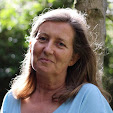I’m in the
office getting ready for next week’s Building a Better Future course, which my
husband Peter and I run for people who want to make changes in their lives. The
list of names has been shifting all week, some people dropping off because of
changes in their circumstances, others being added at the last minute.
We’ve been in
the self-development field for many years and have worked on this particular
course during the last three. It was initially aimed solely at people who had
been in prison, but we soon realised there are many more people needing this
kind of input, so opened it up to anyone who is ready and willing to change. We
have teamed up with the homelessness charity Crisis and run the course in their
Skylight Centre in London four times a year. Participants now include the
homeless and recently homeless, people who have struggled with addiction, and
those looking for a new way forward. Anyone is welcome as long as they come for
the full five days, are prepared to look at themselves and their situation, and
are open to change.
We’ve had people
of all ages, from young people of 18 through to pensioners; men and women; many
nationalities and from all walks of life. Whatever the backgrounds of those in
the room, at the end of the week there is a group of people who have been on a
journey together, who care about each others’ future and are prepared to offer one
another support if it’s needed.
Despite the range of people who attend the course,
their issues are often similar: a difficult childhood or traumatic event that caused
deep pain, low self-esteem, anger and self-pity. This often led to disengagement
with education; violence or crime; substance abuse; and/or mental health
issues. Most people are deeply ashamed, but often mask this by blaming their
circumstances, other people or society for their ills.
During the
week we explore the emotions that control us, discover how to identify them and
to release them safely and effectively. We identify the best in us and the
worst in us; most people find it much easier to see what is wrong with them
than to acknowledge their qualities, but by the end of the week everyone knows
their strengths and how they can use those to move forward. We look at our life
stories and how they have made us who we are – we take responsibility for the
decisions we’ve made, and forgive ourselves for those bits of our lives we
aren’t proud of.
We use a variety of processes to achieve this. The key
thing is to build trust within the group, and a range of simple exercises help
participants get to know each other and feel comfortable in the room. On the
first day we look at a model of emotions, allowing people to explore what emotions
have dominated their lives and how to manage them; we use discussion and drama to
do this. Throughout the week we use relaxation techniques, breathing and
visualisation to manage stress, build self-esteem and release old emotions. We
use stories, poems, drawing and symbolism to by-pass old thought patterns and
explore new ways of looking at things. Once the group has bonded and there is a
high level of trust, participants can use a listening circle to express and release
the parts of their past that are holding them back. By the end of the week the
group knows each other well and are able to give each other powerful feedback
that leaves people feeling valued and recognised. The final day involves making
a practical action plan for next three months and a simple ritual to leave the
past behind and step into a better future.
The course allows
people to let go of things that have been holding them back, leave their past
behind and to decide what needs to be done to embark on a positive future. There’s
a lot of laughter along the way and often a few tears. For many it is healing
place and a turning point in their life. It is powerful and effective because
it addresses the causes of the participants’ destructive behaviour. Once these
have been identified and released, the person is able to move on from their
past and start making constructive choices. Whilst the journey is by no means
over, participants usually leave with a sense of self-worth feeling that a
burden has been lifted from them. This makes it easier for them to address
mental health issues, addiction and offending, and so not only improves their
life chances, but also reduces the amount the state will spend on them in their
lifetime – a week’s investment with a high return in every sense.
So back in the
office I’ve done the confirmation calls and am looking forward to meeting those
I’ve spoken to. I look at the list and wonder who will arrive and who will not,
and who will stay the course. I’m looking forward to getting to know the
personalities, hear their stories and witness the struggles and triumphs they
experience during the week. But most of all I’m looking forward to learning
what each person I share the week with will add to my life.
